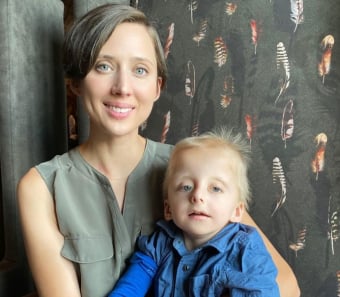This panel of 2 enzymes is intended for patients with a diagnosis or clinical suspicion of Mucopolysaccharidosis IV (MPSIV)/Morquio syndrome. Enzyme analysis for each type of Morquio syndrome may be ordered individually or as a panel.
2 weeks
82657 x2
$400
Morquio syndrome is characterized by short stature and trunk, large head, mildly coarse facies, widely spaced teeth, corneal clouding, a bell-shaped chest, vertebral anomalies, joint stiffness and kyphoscoliosis. Other features may include inguinal hernia, hepatomegaly and hearing loss. There is a wide spectrum of those affected ranging from mild to severe. Intelligence is typically not affected.
Morquio, Types A and B can have significant clinical overlap, thus enzyme analysis is necessary to distinguish between the two types. These enzymes are needed for the modification and removal of keratin sulfate.
4-methylumbelliferyl substrate
Enzyme activity can be measured in leukocytes, cultured fibroblasts, or dried blood spots. For leukocytes, please send 5-10 ml of whole blood in a green top (sodium heparin) tube. For dried blood spot collection, a minimum of three circles need to be filled in. Each circle should contain one drop of blood (about 100 microliters). See the link below for additional sample collection and handling instructions.
Whole blood samples (for leukocyte analysis) should be shipped at ambient temperature and must arrive at the laboratory the next day. Cultured fibroblasts should be sent overnight at room temperature. For a dried blood spot: When the sample has dried 3-4 hours, fold cover at score line, over sample, and tuck into flap. Samples can be mailed at ambient temperature.
Call our laboratory at 1-800-473-9411 or contact one of our Laboratory Genetic Counselors for assistance.
Robin Fletcher, MS, CGC
Falecia Thomas, MS, CGC
Alex Finley, MS, CGC
